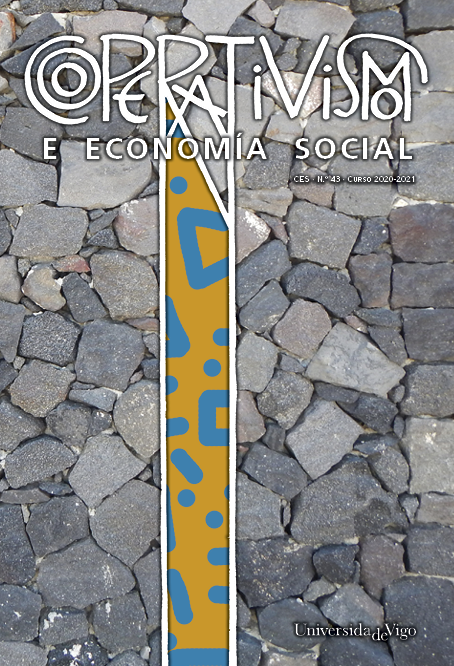CONCEITO JUSNORMATIVO EUROPEU DE EMPRESA SOCIAL: A ENGENHARIA UTILIZADA NA CONSTRUÇÃO DO CONCEITO
DOI:
https://doi.org/10.35869/ces.v0i43.3803Palabras clave:
empresas sociais, regulação, direito da União Europeia, conceito jurídico, conceito jusnormativoResumo
O tema deste artigo é o conceito jusnormativo europeu de empresa social, contudo o seu objeto não é este conceito em si, mas sim o seu processo de construção. O objetivo deste trabalho é, portanto, abordar o processo de construção desse conceito. Quanto mais claro e preciso for este processo, mais seguro e eficaz será o conceito construído. De forma simplificada, conceitos jusnormativos são conceitos encontrados no contexto das normas jurídicas. Tais conceitos representados por palavras ou expressões, como é o caso de empresa social, não têm um significado prévio, ao contrário, têm seu significado determinado pela interpretação de seu uso nas normas nas quais as palavras e ou expressões que os representam aparecem. Sendo assim, a língua possui um papel muito importante no processo de construção de um conceito jusnormativo. Línguas não são neutras, elas carregam conceções e formas de pensar, elas são formadas e transformadas de acordo com as práticas e culturas das comunidades onde são faladas. Logo, a língua utilizada no processo de criação do direito da UE pode influenciar na construção dos conceitos jusnormativos deste direito. O processo de construção do conceito jusnormativo de empresa social na UE apresenta uma peculiaridade que é o fato de ser realizado em 24 línguas oficiais, o que significa a possibilidade
da existência de diferentes conceções deste conceito nos Estados-Membros, de acordo com suas práticas e cultura, além claro, da possibilidade da existência de outras expressões serem utilizadas para a representação do conceito em construção. Para a realização desta análise, o artigo está dividido em duas partes. A primeira traz uma explicação geral do significado da expressão conceitos jusnormativos, esclarece quando sua identificação se torna necessária e porque este é o caso do conceito de empresa social no ordenamento jurídico europeu. A segunda traz um aprofundamento sobre estes conceitos no contexto da teoria do direito a fim de identificar funções, classificações e processos necessários para a sua identificação e aponta como este conhecimento pode ser útil para a regulação da empresa social no ordenamento jurídico europeu.



